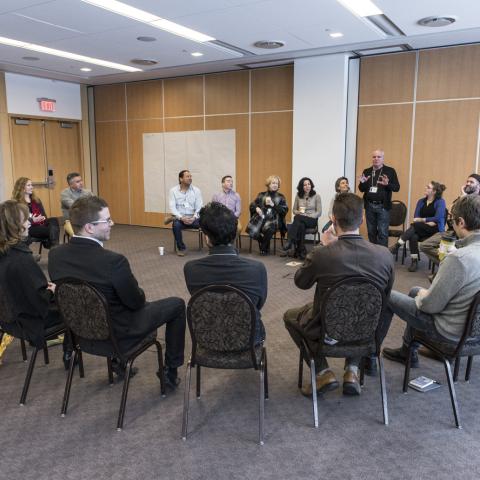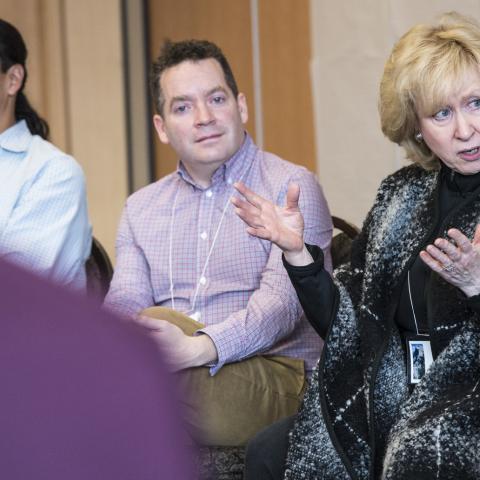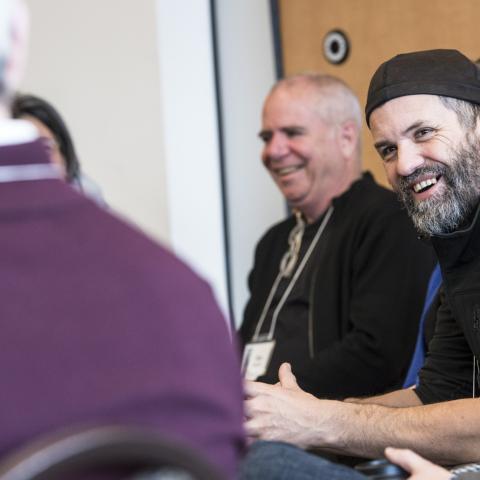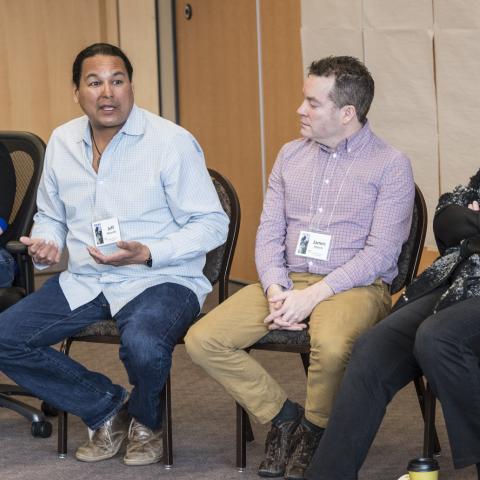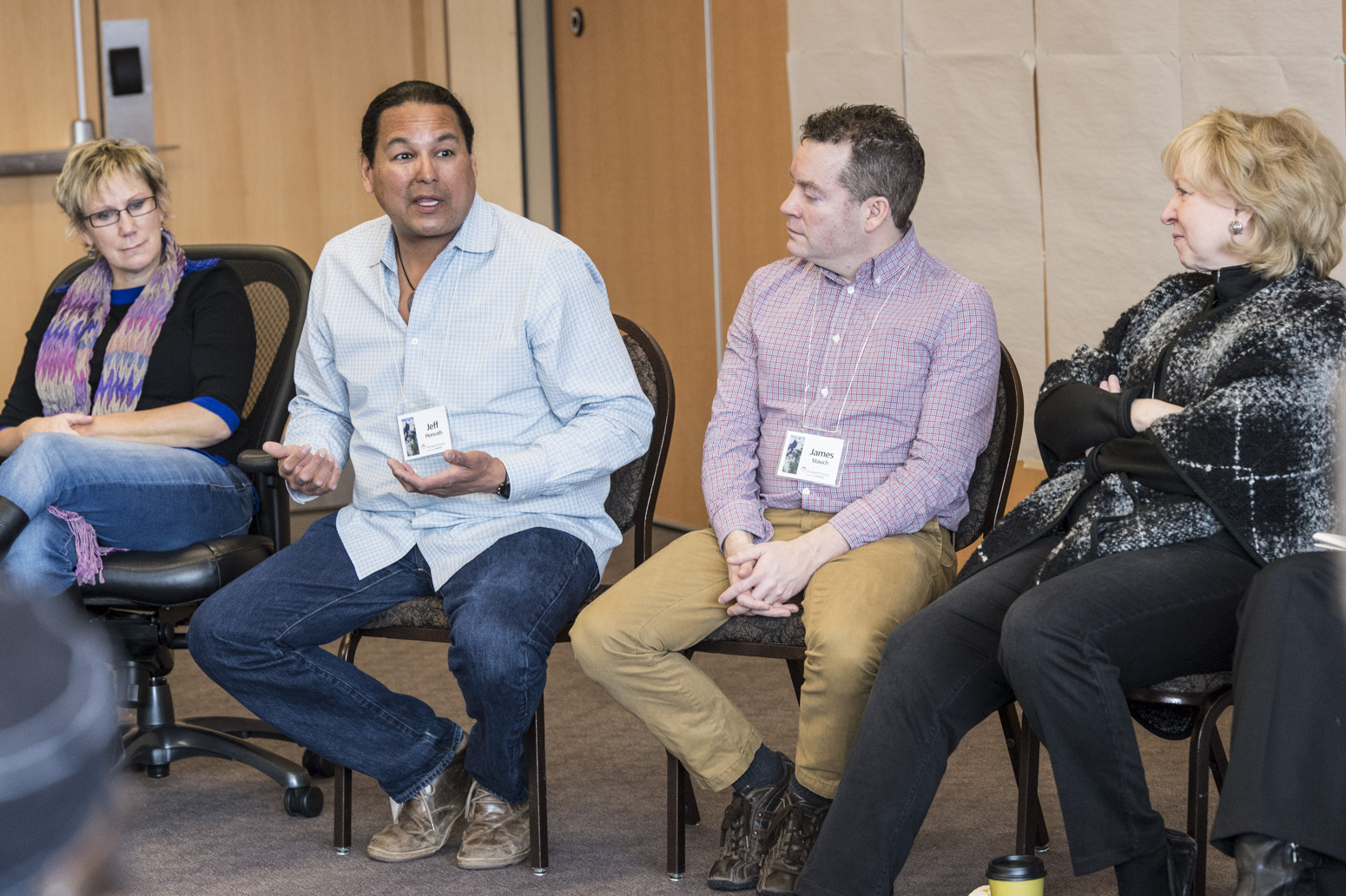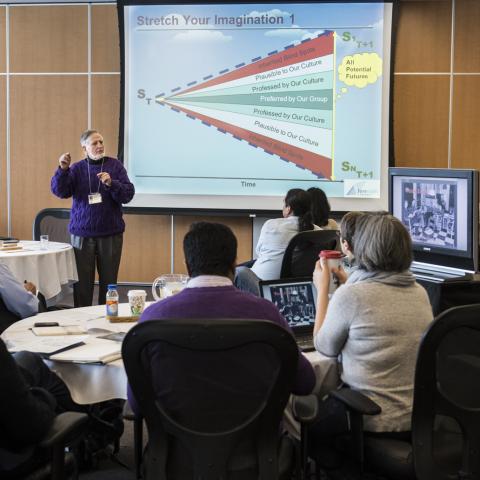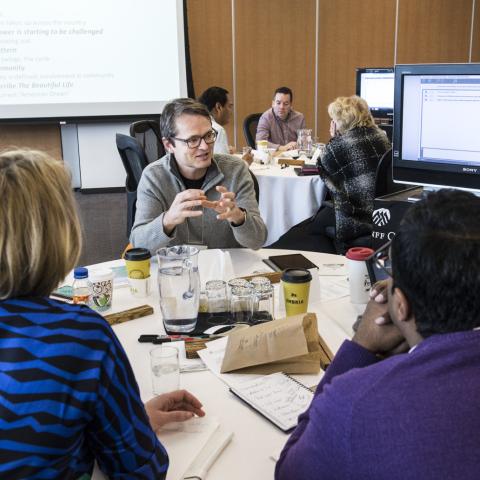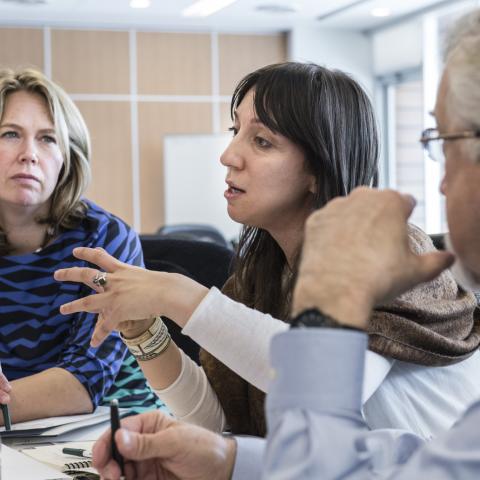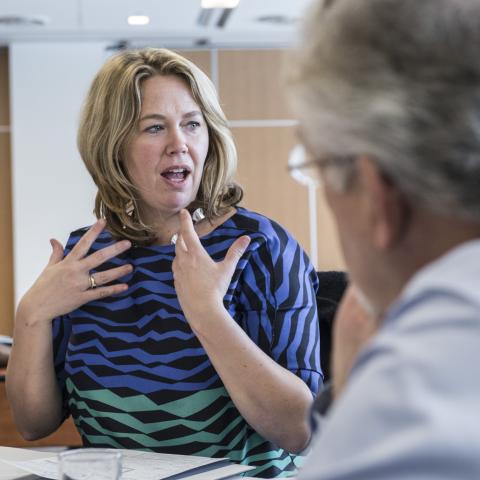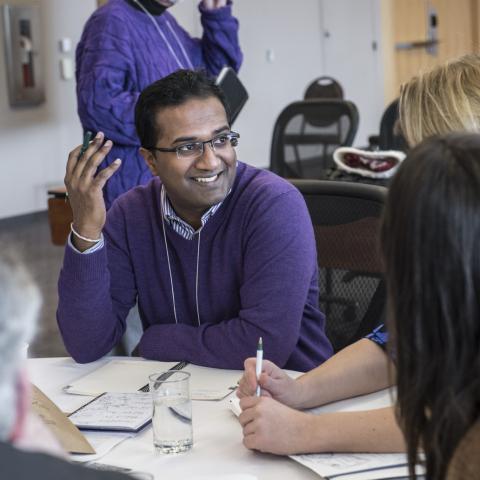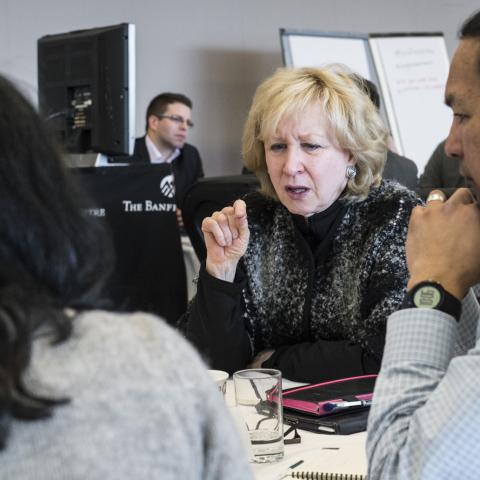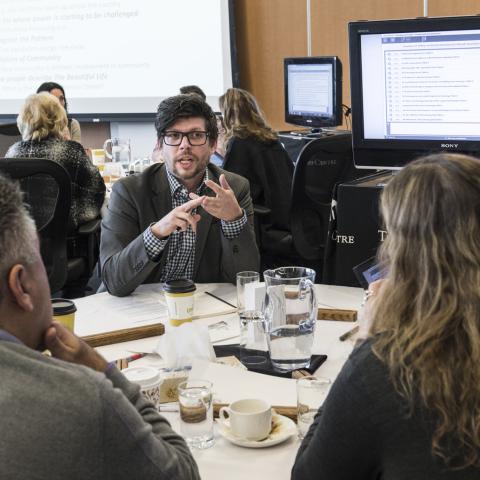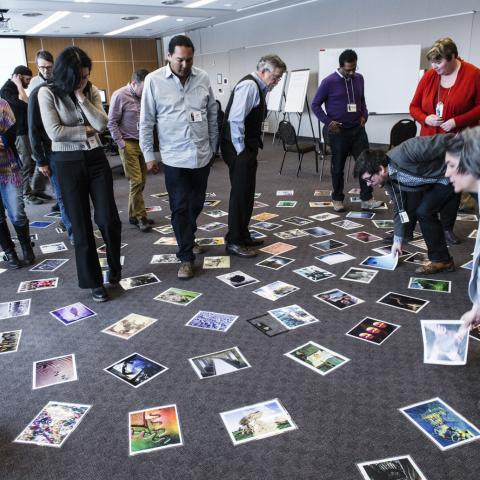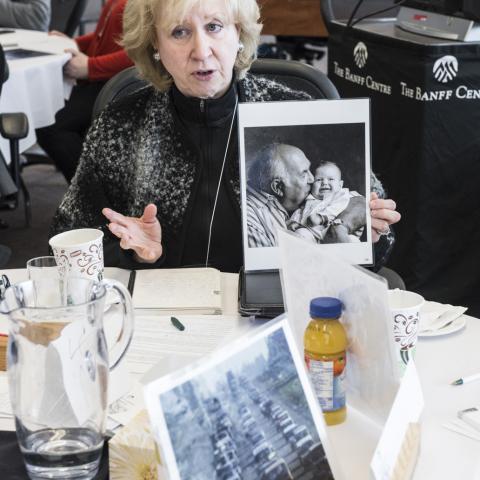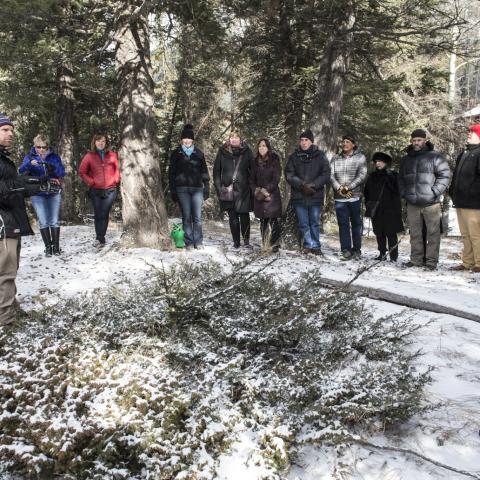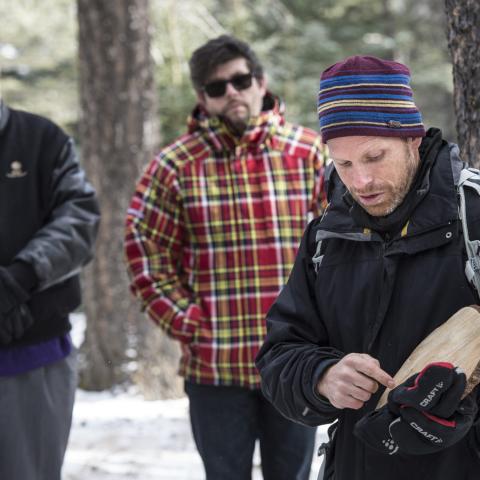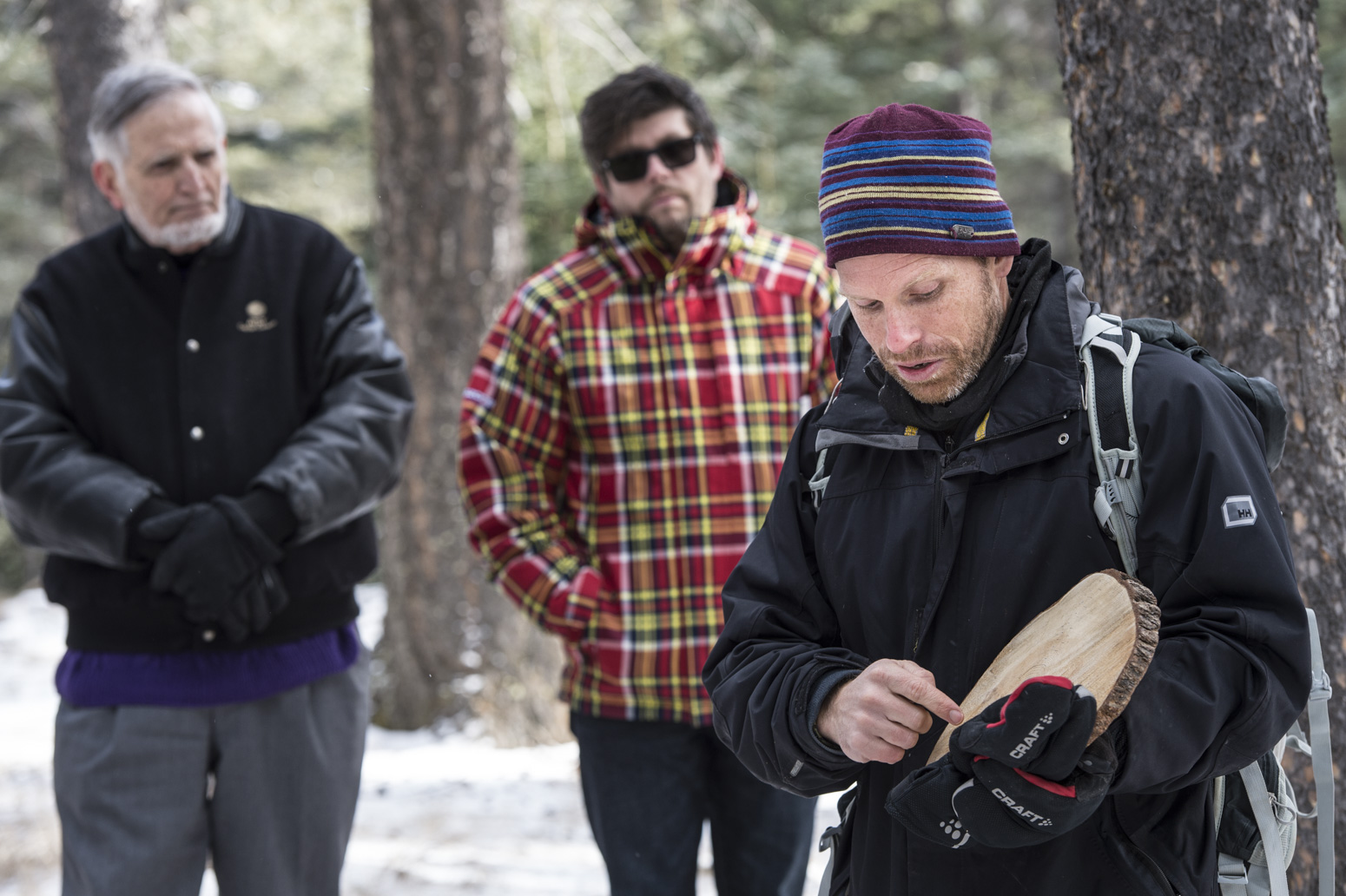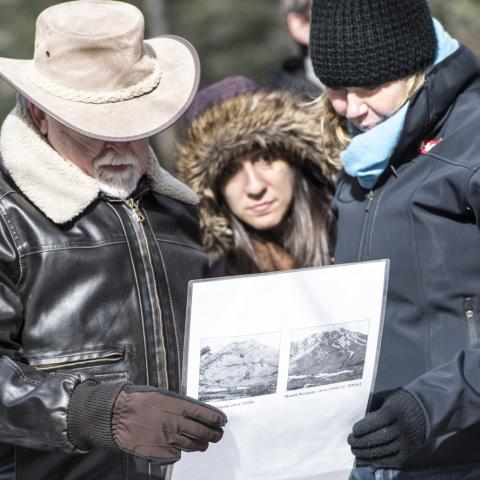Lougheed Network: A Global Leadership Conversation
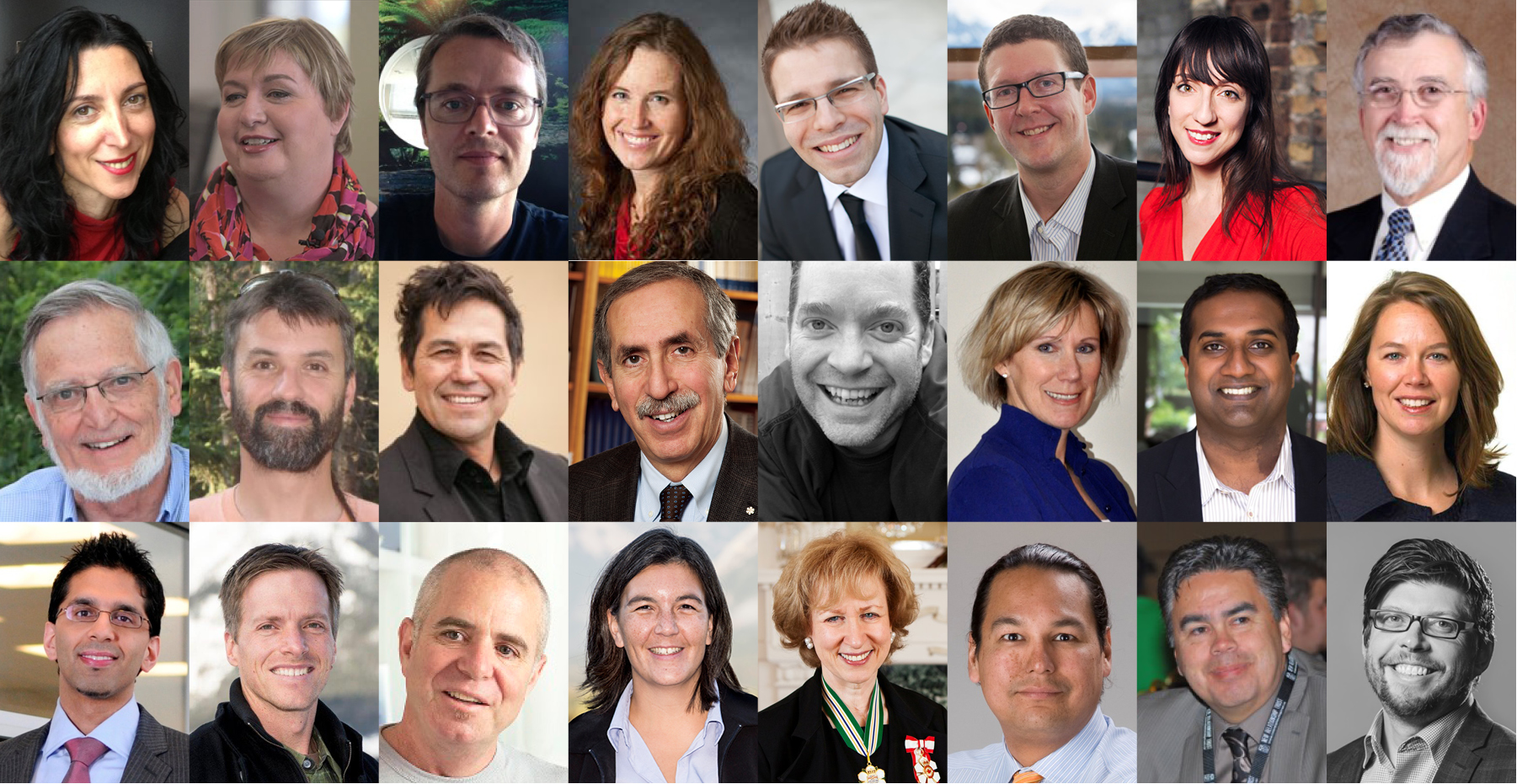
We want to identify the elements needed for a style of leadership that will be able to address the challenges identified for the first half of the 21st century.
Dan Buchner, vice president, Peter Lougheed Leadership Institute
This work set the tone for conversation two, Future Framework. Over the course of four-days, designers of education experiences examined what a leader needs to be, think, do and imagine in order to address these challenges.
Participants explored what learning experiences, methods, and developmental paths will best shape the leadership needed in the future. They were also asked to consider what an unusually effective leader, or leadership collective, will need in order to develop a successful ‘practice’ in the uncertain conditions of 35 years from now.
“We brought together over 20 people who we admire and are intrigued by and asked them to think about how they have developed their practice to date. What have they done to integrate all the experiences, models, knowledge and personal learning that they have accumulated over the years into a coherent offering,” said Lougheed Leadership Network lead facilitator Brian Woodward. “We wanted them to think about the act of leading as an individual, in a group, for an organization, and also within a community. What knowledge, capacities, or artistry might be required? What learning and experience will need to be developed, and how will they learn?”
Future Framework participants worked in self-directed teams in their own working spaces then shared their work back out with each other in larger end-of-day gatherings. Each participant also enlisted an external colleague to act as a sounding board and an additional idea generator – someone with whom the participant has trust and whose opinion is respected.
This understanding will help inform the programming of Peter Lougheed Leadership Institute at The Banff Centre and steward leaders from Alberta, Canada and the rest of the world.
To learn more about projects at the Peter Lougheed Leadership Institute, please contact us for more information:
leadership@banffcentre.ca
(888) 255-6327


